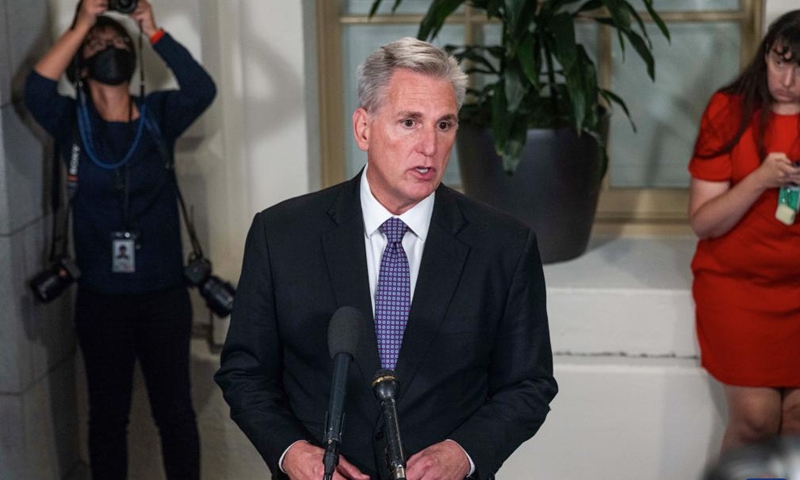Removal of McCarthy signifies further polarization of American politics

On October 3, the US House of Representatives voted to oust Speaker Kevin McCarthy, making him the first Speaker of the House in US history to be voted out, and also the one with the shortest tenure. What's crucial is that it marks the deepening division within the Republican Party and the further polarization between the two major political parties in the US.
The state of the US politics is essentially fragmented, with significant changes in the core voter demographics of both parties and the emergence of prominent extremist forces. Within the Republican Party, extreme factions like the Freedom Caucus have gained prominence since the era of Donald Trump. This political fragmentation has led to confusion and internal strife within both parties, as explained by Diao Daming, a professor at the Renmin University of China in Beijing. According to Diao, this event is a result of political decline and the failure of governance. Instead of addressing critical issues such as the debt ceiling and government shutdown, both parties prioritized maximizing their internal interests.
Following this turmoil, the space for compromise between the two parties is expected to shrink further. This phenomenon is driven by both technical and strategic reasons, said Yang Xiyu, a senior research fellow at the China Institute of International Studies. Faced with the budget dispute between the two parties, McCarthy made a compromise that did not sit well with the hardliners within his party. His removal essentially prevents future Speakers of the House, who are also leaders of the Republican Party, from following in McCarthy's footsteps.
From a strategic perspective, the divisions between the two parties extend beyond specific budgetary issues to affect US' national development. The different budget proposals put forward by the Democratic and Republican parties reflect their distinct visions for the country. With the turmoil within the Republican Party, it has become increasingly difficult for both parties to reach compromises.
Yang pointed out that this upheaval is not merely about reaching or failing to reach compromises; it fundamentally reflects a disconnect between the current design of the US democratic system and the rapidly changing society. This shift in leadership within the US House of Representatives was triggered by the budget issue, but it is also rooted in the profound divisions between the two parties regarding the direction of the nation. However, the functioning of this political system is becoming increasingly incompatible with the deeply divided American society.
Presently, the US is in a state of political extremism, with both major parties becoming more polarized. As political figures navigate the pressures of Washington, they must continuously rally their constituents. Consequently, voters from both parties are becoming more polarized, further exacerbating the division.
The US had long presented itself as a "beacon of democracy." However, with its domestic political turmoil, this myth has been shattered. This has led to increasing contradictions between the two major driving forces of US foreign policy—American interests and American values. The failure of the American democratic system domestically has raised questions about American values on the international stage. While the US has sought to incorporate these values into its foreign policy and promote them globally, it has also sparked growing conflicts. As a result, the US' international influence has declined, eroding international confidence in the so-called American values.